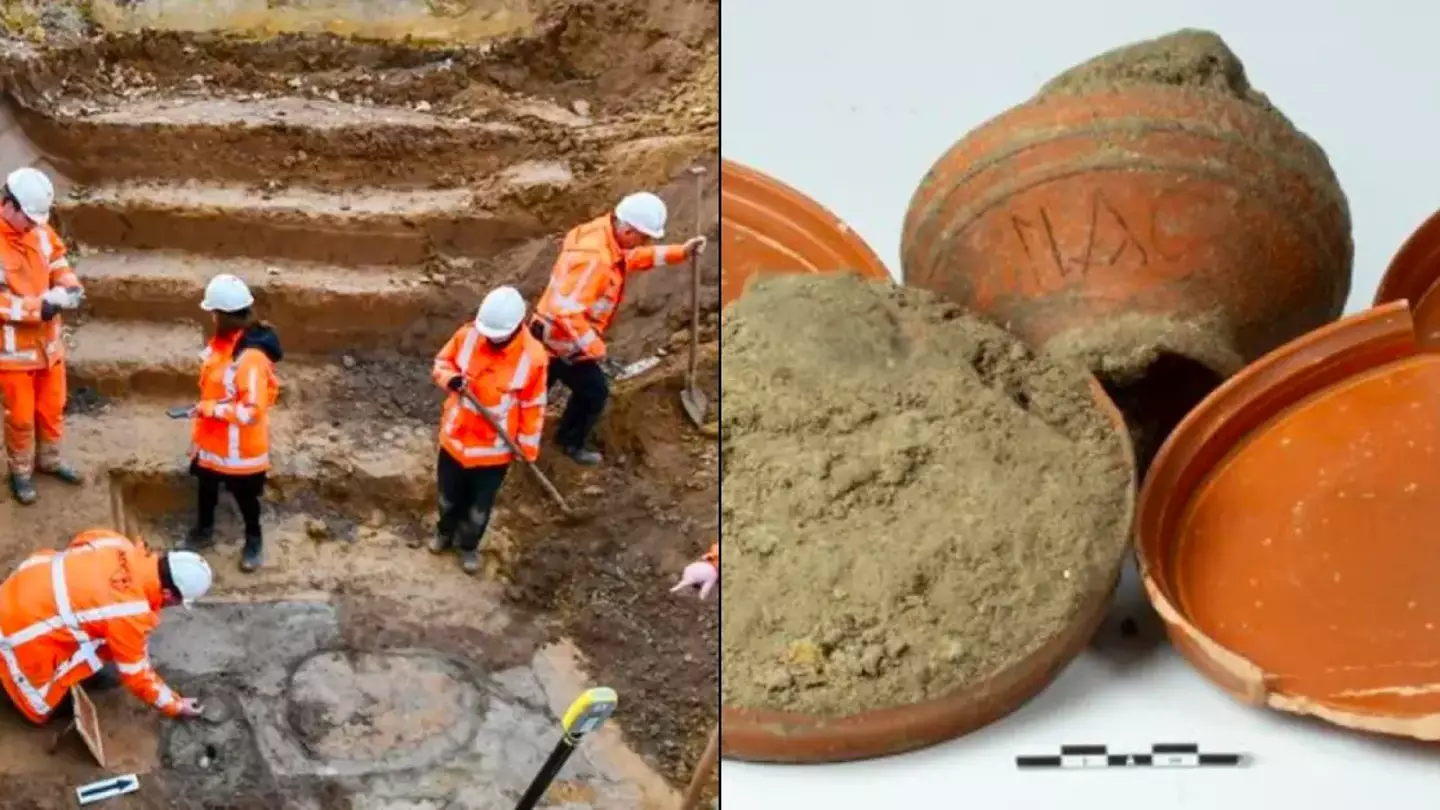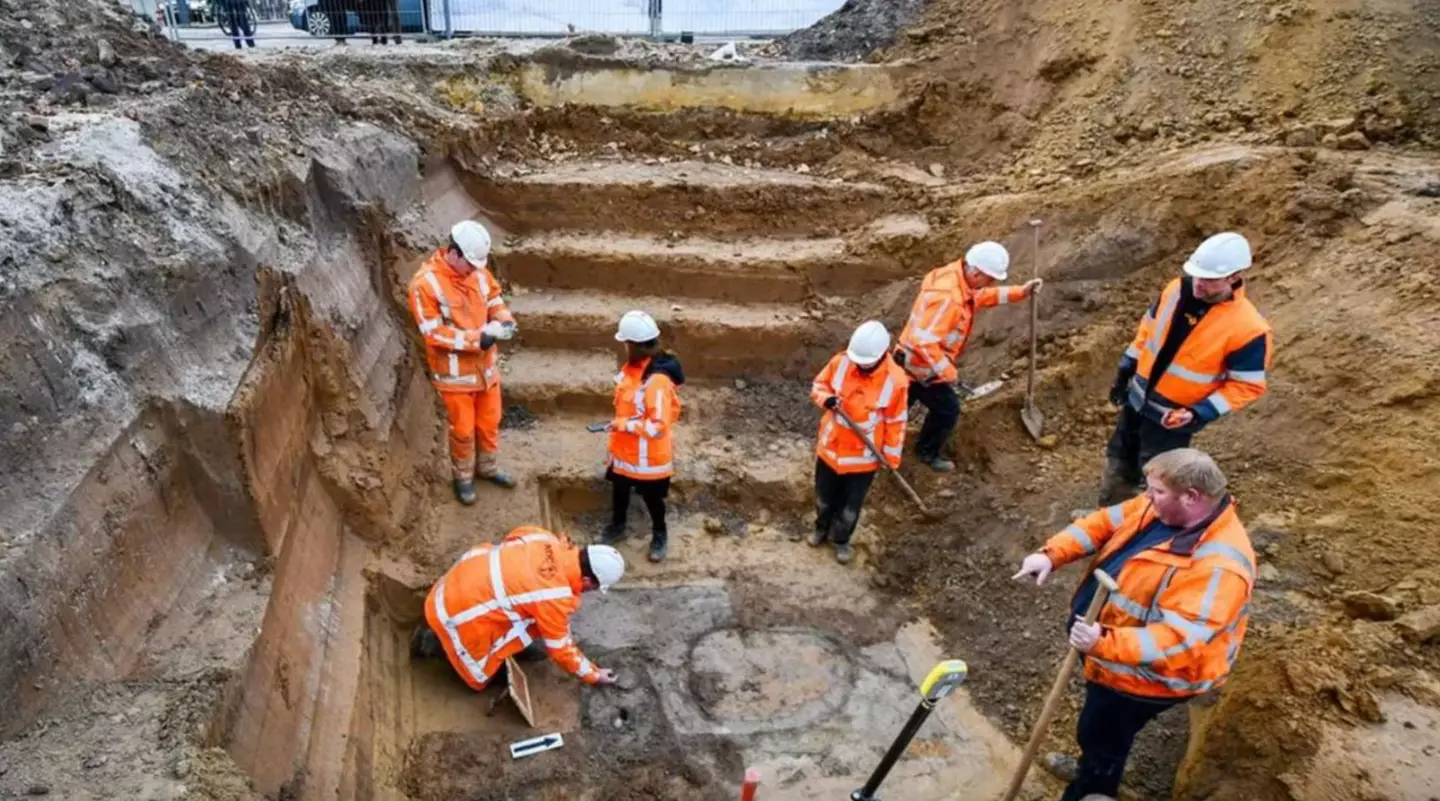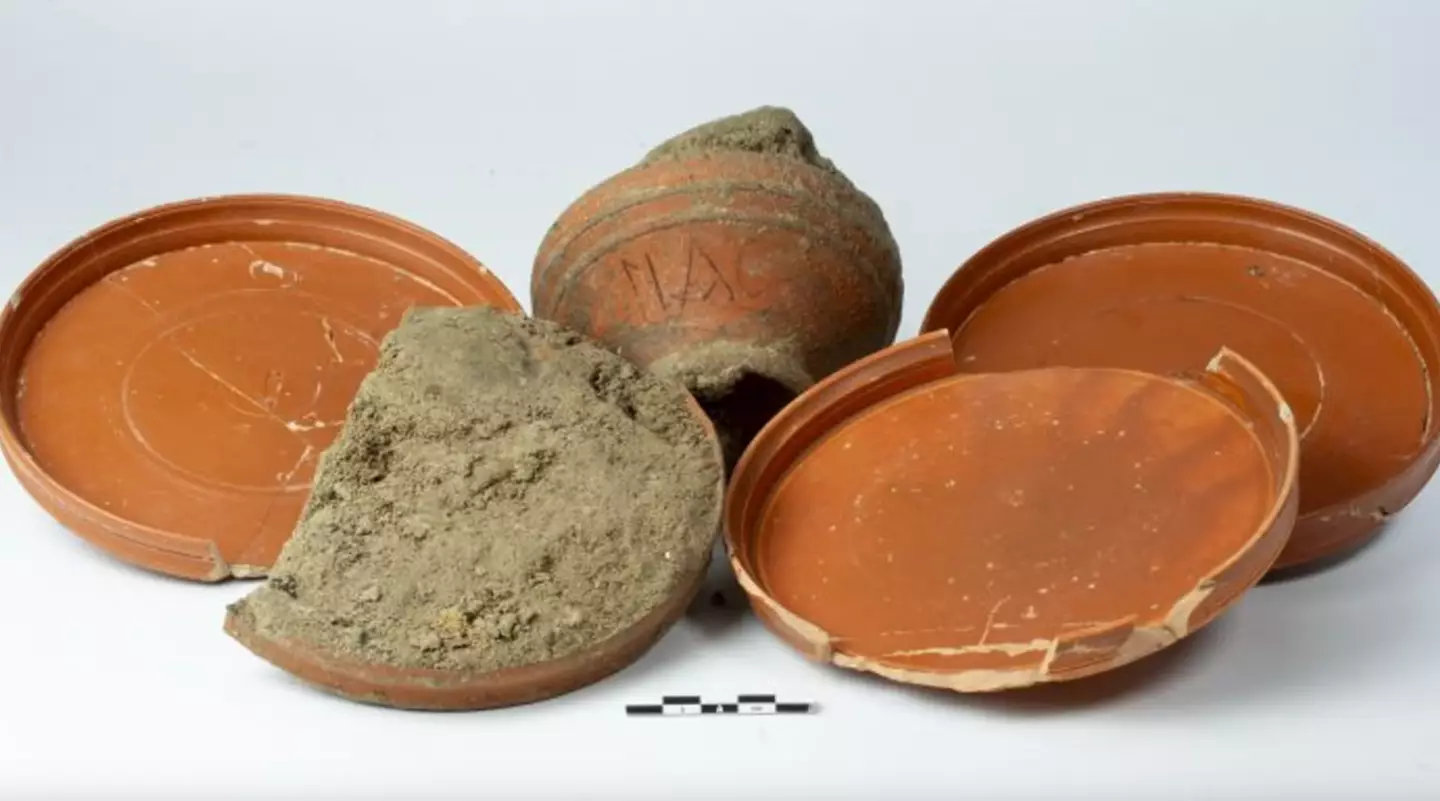
Archaeologists have made a huge discovery in finding the remains of a person that is believed to be from 'year zero'.
The uncovered grave was one from 2,000 years ago, which belonged to a Roman soldier named 'Flaccus', who is believed to have lived around 0AD.
They discovered his remains in the Netherlands, which also brought more attention to the civilisation's overwhelming presence in the region, and in fact the world, at that time in history.

Advert
They worked the soldier's name out after finding the name 'Flac' carved into an unearthed bowl that was in the grave itself.
Sharing the discovery on the official Municipality of Heerlen Facebook page, Jordy Clemens, Heerlen’s council member for culture and heritage, released a statement on the team's discovery.
“Today, evidence was found of Roman habitation in the time of Emperor Augustus. A unique discovery that not only teaches us more about our past, but also shows how unique the story of Roman Heerlen is for the Netherlands," Clemens wrote.
After analysing the gravesite, researchers deduced that Heerlen's first settlement would have been around the Augustan era from around 0 to 20 AD.
This gravesite was discovered in the midst of excavations at Raadhuisplein, the town square in Heerlen, near a couple of historical roads in Via Belgica and Via Traiana.
It was found to be an important location in the middle of a Roman settlement named Coriovallum, according to archaeologists.
Cariovallum was known for its Roman bathhouse, which is also the oldest stone building in the whole country, built in approximately 40AD.
Not only that, but the building also had a restaurant and library, which points towards the area being a multi-purpose building and a place of meeting in Roman times. They really were ahead of their time, weren't they?

Archaeologists further explained that their findings would give us some new insights into the history of the city, adding: “Never before have we found a Roman grave from this period with a name.”
As well as Flaccus, they found a bronze skin scraper, four plates and a bowl in the grave, managing to trace the pottery back to ancient Italy, confirming their suspicions that he was a Roman soldier.
In the past, digs in the area have uncovered nothing more than pottery shreds, not proving the presence of a settlement as these items could have been left behind during travel.
Flaccus' grave gave researchers eye-opening evidence that there was a Roman presence in the region, as they further explained: “It is a unique find because it is not only the oldest Roman grave in Heerlen but also because no name was known there before.”
Topics: History, World News